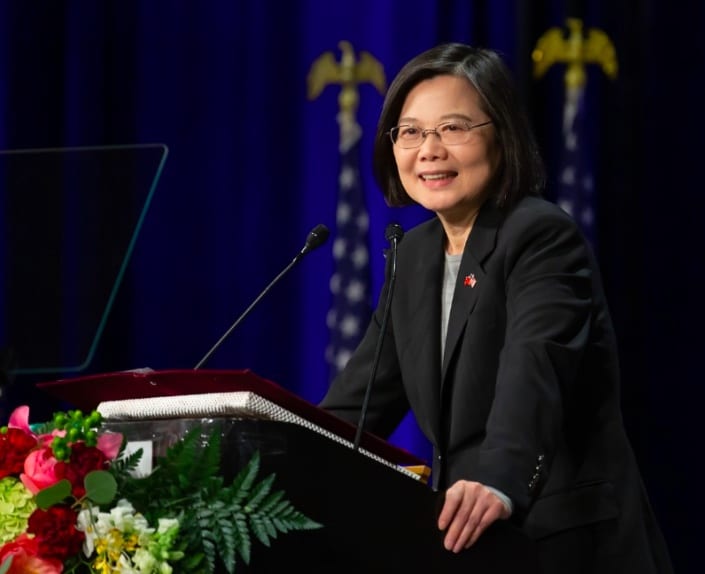China deployed warships in the waters around Taiwan Thursday, one day after Taiwanese President Tsai In-wen met with House Speaker Kevin McCarthy (R-CA).
China had threatened that it would undertake “resolute countermeasures” if McCarthy and Tsai went through with their planned meeting, saying it would be “another provocation that seriously violates the one-China principle.”
McCarthy and Tsai went through with it anyway, meeting at the Reagan Library in Southern California. They were joined by a bipartisan group of at least 17 other lawmakers, including the leading Republican and Democrat on the newly-formed House Select Committee on China.
The meeting occurred at the tail end of a week-long world tour by Tsai that included Wednesday’s stop in Los Angeles following a stop in New York City on Thursday, after which she set off on a multi-nation tour of Central America.
Before embarking on her tour Tsai spoke defiantly against Chinese threats, telling reporters that “external pressure” would not stop Taiwan from connecting with like-minded democracies.
China claims the self-governing island of Taiwan as its own territory, and has in recent months been saber-rattling against its neighbor, situated just 100 miles off the Chinese coast. Analysts say that China has been watching and waiting to see how Russia fares in its invasion of Ukraine before going forth with an assault against Taiwan.
On Thursday, three additional warships were detected in waters separating the island from mainland China, Taiwan’s Ministry of National Defense said on Thursday morning. Chinese coastguard vessels and an anti-submarine helicopter were also spotted.
China also undertook a military blockade against Taiwan last summer in response to a visit to the island by then-Speaker Nancy Pelosi (D-CA). Taiwan’s Foreign Minister had asserted at the time that the Chinese blockade was a “game plan” for invasion.
This Thursday, a bipartisan delegation of U.S. lawmakers arrived in Taiwan, including House Foreign Affairs Chair Michael McCaul ( R-TX). It was part of a three-nation trip that also included stops in Japan and South Korea—both of which have recently beefed up their military postures in response to China’s saber-rattling.
“Being here I think sends a signal to the Chinese Communist Party that the United States supports Taiwan and that we’re going to harden Taiwan, and we want them to think twice about invading Taiwan,” said McCaul.


